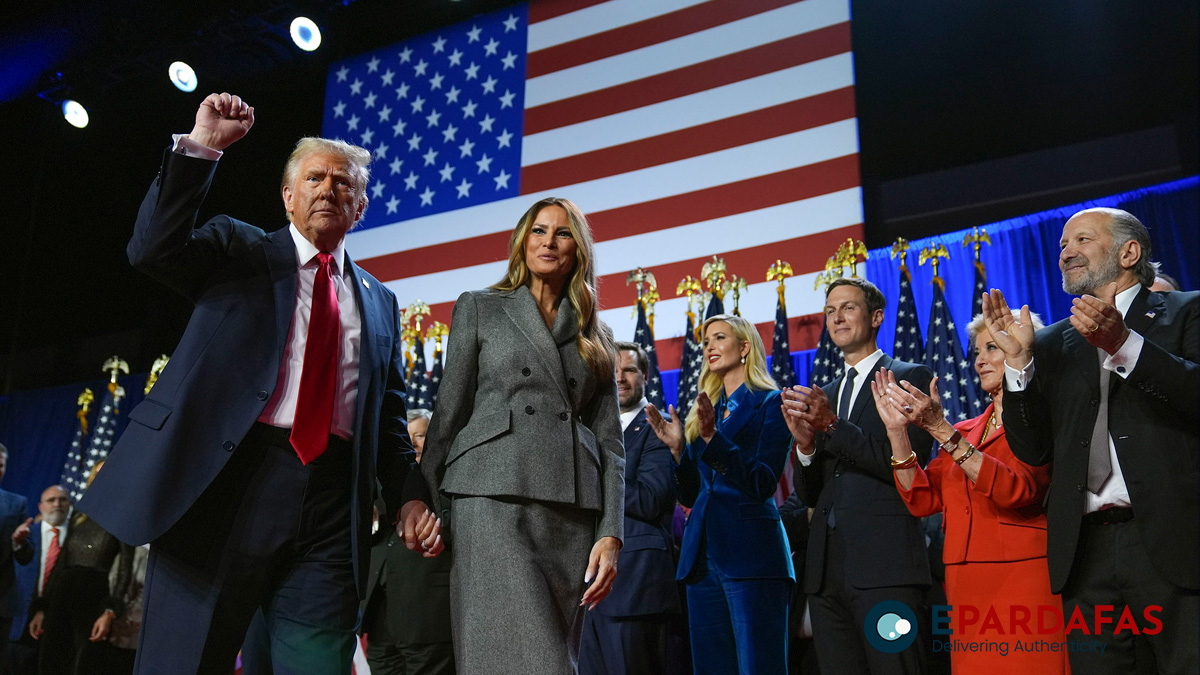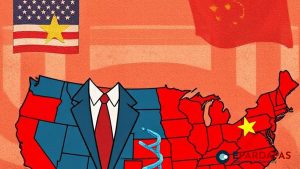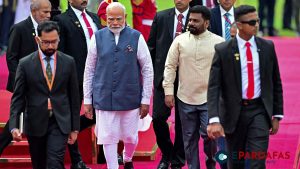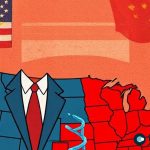
Donald Trump Re-Elected President, Signaling New Era in American Politics
In a historic and highly charged election, Donald Trump has been re-elected as President of the United States, marking a remarkable comeback to the White House four years after his first term ended. Trump’s victory concludes a contentious and polarized campaign, positioning him at the helm of American leadership once again—a scenario that experts believe will put domestic democratic institutions to the test and could reshape the United States’ relations on the global stage.
Trump’s Unexpected Return
Trump’s return to the Oval Office follows a unique period in U.S. political history. After losing his re-election bid in 2020, he remained a central figure in American politics, galvanizing a loyal base while polarizing the nation. Despite legal battles and political controversies, Trump’s campaign focused on a populist message, pledging to “restore American greatness” and address the concerns of working-class Americans. His renewed bid drew considerable support, indicating that a substantial portion of the electorate was eager to bring him back into power.
Domestic Implications: Testing Democratic Institutions
Analysts suggest that Trump’s re-election could bring profound shifts in America’s democratic institutions. His prior administration was marked by frequent clashes with Congress, the judiciary, and federal agencies. Critics argue that his policies and approach to governance often pushed the boundaries of executive power, igniting debates over the balance of powers outlined in the U.S. Constitution. Now, as he takes office for a second term, questions loom over how his administration will engage with the legislative and judicial branches. Observers anticipate potential shifts in the role of the federal judiciary, as Trump may continue his previous efforts to appoint conservative judges who could influence U.S. legal precedents on issues ranging from voting rights to environmental policies.
Trump has also hinted at significant changes to federal agencies, vowing to “drain the swamp” and eliminate bureaucratic inefficiencies. Supporters see this as a step toward limiting what they view as governmental overreach, while opponents worry it could weaken key agencies, including those that oversee environmental protections, civil rights, and healthcare regulations. Additionally, Trump has promised sweeping reforms to the U.S. Department of Justice and intelligence agencies, institutions he previously criticized as “politicized.”
Foreign Policy Shifts: Realigning U.S. Relations
On the international front, Trump’s leadership is expected to bring about substantial policy shifts that could alter the United States’ relationships with allies and rivals alike. Known for his “America First” foreign policy, Trump has been vocal about reducing U.S. involvement in international alliances and treaties that he views as unfair or burdensome. Analysts suggest that under his renewed administration, the U.S. might see a partial withdrawal or reassessment of its commitments to organizations such as NATO and the United Nations, especially if those commitments are perceived to disadvantage the U.S. economically or militarily.
In Asia, Trump’s previous term saw a hardline approach toward China, with tariffs, trade restrictions, and a confrontational stance on issues such as technology and intellectual property. A similar stance is expected in his second term, possibly heightening tensions as the U.S. aims to counterbalance China’s rising influence. Trump has also signaled a willingness to negotiate directly with North Korea and re-evaluate alliances with countries like Japan and South Korea, prioritizing bilateral agreements over multilateral ones.
In the Middle East, Trump is expected to continue his support for Israel and may take a more aggressive approach to limit Iran’s nuclear ambitions, possibly reigniting tensions. Trump’s administration previously withdrew from the Iran nuclear deal, and his advisors have hinted that he may focus on establishing stricter sanctions or pursue alternative diplomatic avenues to address concerns over Iran’s regional influence.
Economic Focus and Populist Agenda
Domestically, Trump’s economic policies are anticipated to emphasize deregulation, tax reform, and a continuation of policies intended to foster job creation within the United States. A primary focus of his campaign was revitalizing American industry, especially in sectors like manufacturing, energy, and technology. Trump has promised to bolster domestic production by encouraging businesses to bring manufacturing back to the U.S. and reducing reliance on foreign supply chains, a strategy aimed at protecting American jobs and reducing economic vulnerabilities.
In addition, Trump’s stance on immigration is likely to shape his administration’s economic priorities. Known for his stringent immigration policies, Trump’s re-election could see a return to policies that restrict both legal and illegal immigration. Supporters argue this approach could help protect American jobs, while opponents contend it may impact sectors reliant on immigrant labor and reduce cultural diversity.
Looking Ahead: A Divided America
Trump’s victory underscores the deep divisions within the United States. As he takes office, Trump faces the challenge of governing a nation that remains polarized on key issues, from race relations and climate change to healthcare and education. While his supporters view his win as a victory for traditional American values and populist ideals, critics fear his policies may further entrench divisions and strain democratic norms. The road ahead for Trump’s second term promises to be marked by significant debate, both at home and abroad, as the United States navigates a new era of leadership under one of its most controversial presidents in modern history.
Conclusion
Donald Trump’s return to the White House signifies a new chapter for the U.S., one where domestic and foreign policy shifts are likely to redefine America’s role on the global stage. His re-election is poised to leave a lasting impact on democratic institutions, economic policies, and international alliances, setting the tone for America’s future in an increasingly complex world. As Trump prepares to take the oath of office once again, the eyes of both his supporters and critics—across the U.S. and around the world—are firmly fixed on the path his administration will carve in the years to come.
- High-Level Commission Calls for Sweeping Legal and Institutional Reforms to Revive Nepal’s Economy
- High-Level Commission Recommends Investment-Friendly Reforms and Lowering Production Costs
- Fugitive Durga Prasai Arrested in Jhapa, Being Transferred to Kathmandu
- President Paudel Extends Greetings on Mahavir Jayanti













Comments